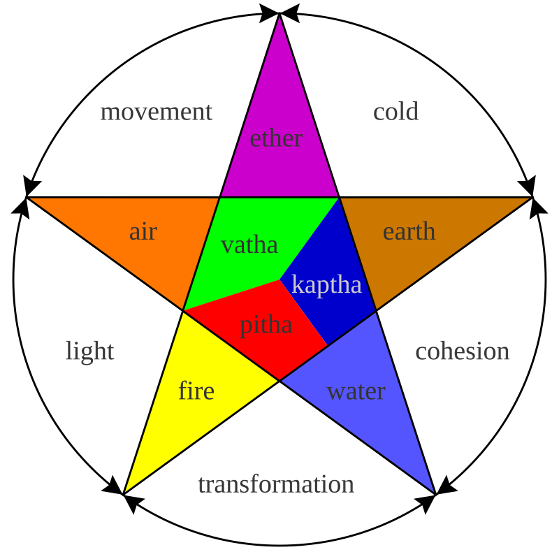The Science of Ayurveda
Ayurveda is an ancient Indian system of medicine, meaning "the science of life," that focuses on achieving holistic health and well-being by balancing the body, mind, and spirit. It emphasizes the importance of the five elements (space, air, fire, water, and earth) and three doshas (vata, pitta, and kapha) in maintaining health.

Key Principles and Doshas
At the heart of Ayurvedic philosophy is the concept of the three doshas: Vata, Pitta, and Kapha. These life energies are believed to govern all physiological and psychological functions in the body. A person's unique combination of these doshas at birth determines their constitution, or 'Prakriti'.
- Vata (Air and Space): Governs movement, circulation, and nerve impulses. When in balance, it promotes creativity and adaptability. An imbalance can lead to anxiety and restlessness.
- Pitta (Fire and Water): Controls metabolism, digestion, and body temperature. A balanced Pitta ensures sharp intellect and a strong appetite. An excess can manifest as anger or inflammation.
- Kapha (Earth and Water): Provides structure, lubrication, and stability to the body. A balanced Kapha fosters strength and compassion. An imbalance can result in lethargy or weight gain.
Lifestyle and Diet in Ayurveda
Ayurveda emphasizes that true health is achieved through a personalized lifestyle and dietary regimen tailored to one's doshic constitution. The system encourages a connection with nature and a rhythm that aligns with the body’s natural cycles.
Dietary recommendations are a cornerstone of this practice. Foods are categorized by their 'rasa' (taste), 'virya' (potency), and 'vipaka' (post-digestive effect), and are chosen to pacify or balance a specific dosha.

Herbal Remedies and Therapies
Ayurveda uses a wide range of natural remedies, including herbs, spices, and minerals. Each remedy is chosen for its specific properties that help restore balance and address the root cause of an imbalance. Popular herbs like Ashwagandha and Turmeric are often used for their adaptogenic and anti-inflammatory properties, respectively.
Key Takeaways
- Ayurveda is a holistic science for balancing body, mind, and spirit.
- The three doshas are Vata, Pitta, and Kapha.
- Lifestyle and diet are crucial for maintaining health and balance.
- Ayurvedic treatments are personalized and focus on the root cause.